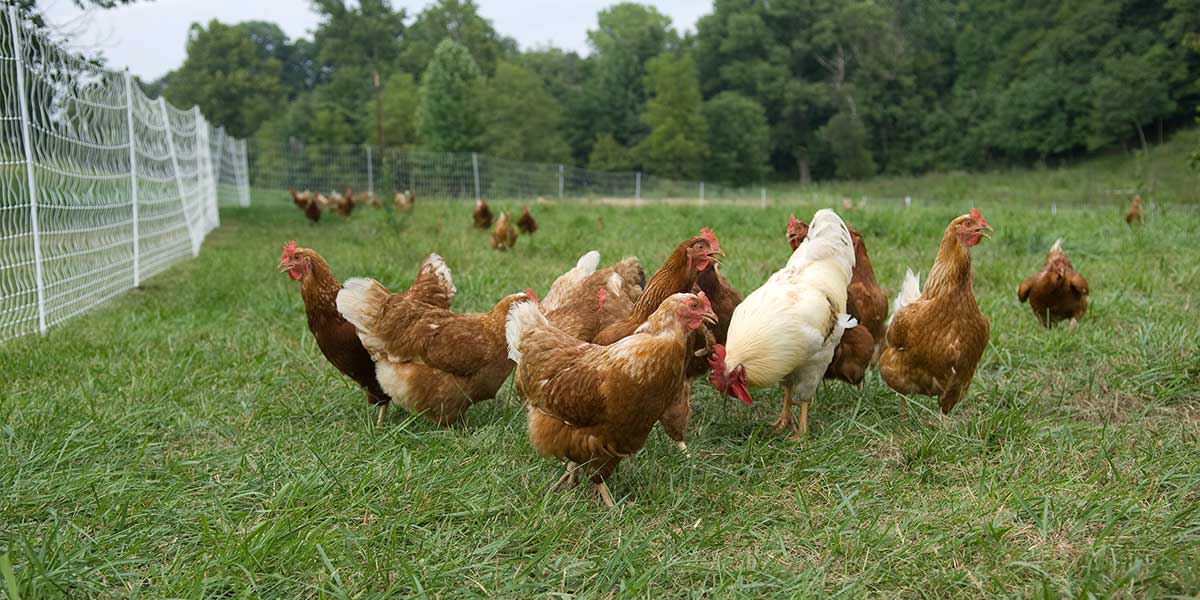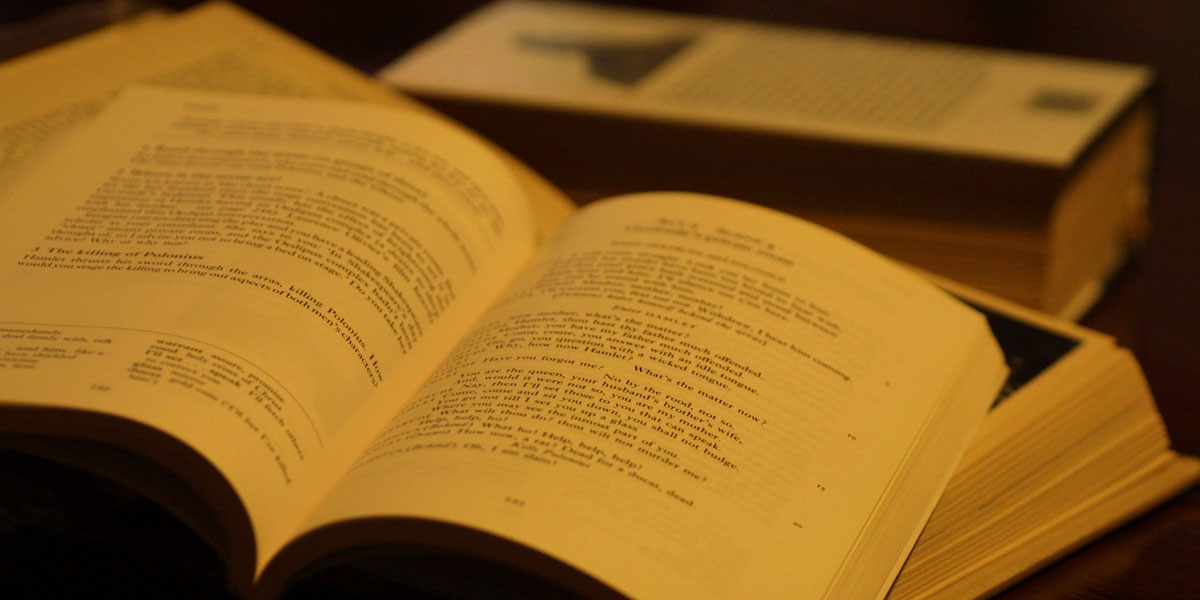Celebrating Animals for National Poetry Month
Throughout our short but spectacular history, we of the bipedal mammalian species known as Home sapiens have been utterly fascinated by our quadruped cousins in the Animal Kingdom (not to mention our finny friends and wingèd companions on this Earth). For centuries we have written learned books about them, recounted their exploits in ancient fables and folk tales, celebrated them in song, drawn their figures on cave walls and canvas, and we began photographing them relentlessly almost as soon as the camera was invented.
And, it goes without saying, we have composed countless poems about them. The sheer volume of poetry dedicated to our fellow creatures—all manner of flesh, fish, and fowl, from monkeys to microbes, from the common to the exotic, limbless and many-limbed, the living and the extinct, and all inhabiting every corner of this amazing terraqueous globe of ours—is daunting, to say the least. Where to start?
This April, to celebrate National Poetry Month, Ketchum Mfg. Co. showcases just a few of our favorites among the most famous poems about our brother animals—both wild and domestic.
The Tyger
by William Blake (1757–1827)
This is one of the best-known poems from Blake’s Songs of Experience.
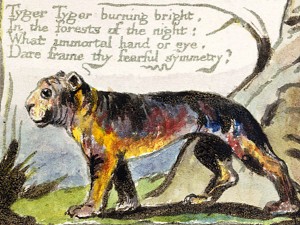
Tyger! Tyger! burning bright,
In the forests of the night,
What immortal hand or eye
Could frame thy fearful symmetry?
In what distant deeps or skies
Burnt the fire of thine eyes?
On what wings dare he aspire?
What the hand dare sieze the fire?
And what shoulder, & what art,
Could twist the sinews of thy heart?
And when thy heart began to beat,
What dread hand? & what dread feet?
What the hammer? what the chain?
In what furnace was thy brain?
What the anvil? what dread grasp
Dare its deadly terrors clasp?
When the stars threw down their spears,
And water’d heaven with their tears,
Did he smile his work to see?
Did he who made the Lamb make thee?
Tyger! Tyger! burning bright
In the forests of the night,
What immortal hand or eye
Dare frame thy fearful symmetry?
♦ ♦ ♦
A Narrow Fellow in the Grass
by Emily Dickinson (1830–1886)
It’s kind of a riddle. Bet you can guess what the “fellow” is!
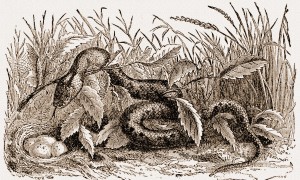
A narrow Fellow in the Grass
Occasionally rides—
You may have met him? Did you not
His notice instant is—
The Grass divides as with a Comb,
A spotted Shaft is seen,
And then it closes at your Feet
And opens further on—
He likes a Boggy Acre—
A Floor too cool for Corn—
But when a Boy and Barefoot
I more than once at Noon
Have passed I thought a Whip Lash
Unbraiding in the Sun
When stooping to secure it
It wrinkled And was gone—
Several of Nature’s People
I know, and they know me
I feel for them a transport
Of Cordiality
But never met this Fellow
Attended or alone
Without a tighter Breathing
And Zero at the Bone.
♦ ♦ ♦
The Windhover
by Gerard Manley Hopkins (1844–1889)
This sonnet captures beautifully in words the velocity and grace in flight of the windhover (another name for Falco tinnunculus, or common kestrel). MUST be read aloud!
I caught this morning morning’s minion, king-
dom of daylight’s dauphin, dapple-dawn-drawn Falcon, in his riding
Of the rolling level underneath him steady air, and striding
High there, how he rung upon the rein of a wimpling wing
In his ecstasy! then off, off forth on swing,
As a skate’s heel sweeps smooth on a bow-bend: the hurl and gliding
Rebuffed the big wind. My heart in hiding
Stirred for a bird, — the achieve of, the mastery of the thing!
Brute beauty and valour and act, oh, air, pride, plume, here
Buckle! AND the fire that breaks from thee then, a billion
Times told lovelier, more dangerous, O my chevalier!
No wonder of it: shéer plód makes plough down sillion
Shine, and blue-bleak embers, ah my dear,
Fall, gall themselves, and gash gold-vermilion.
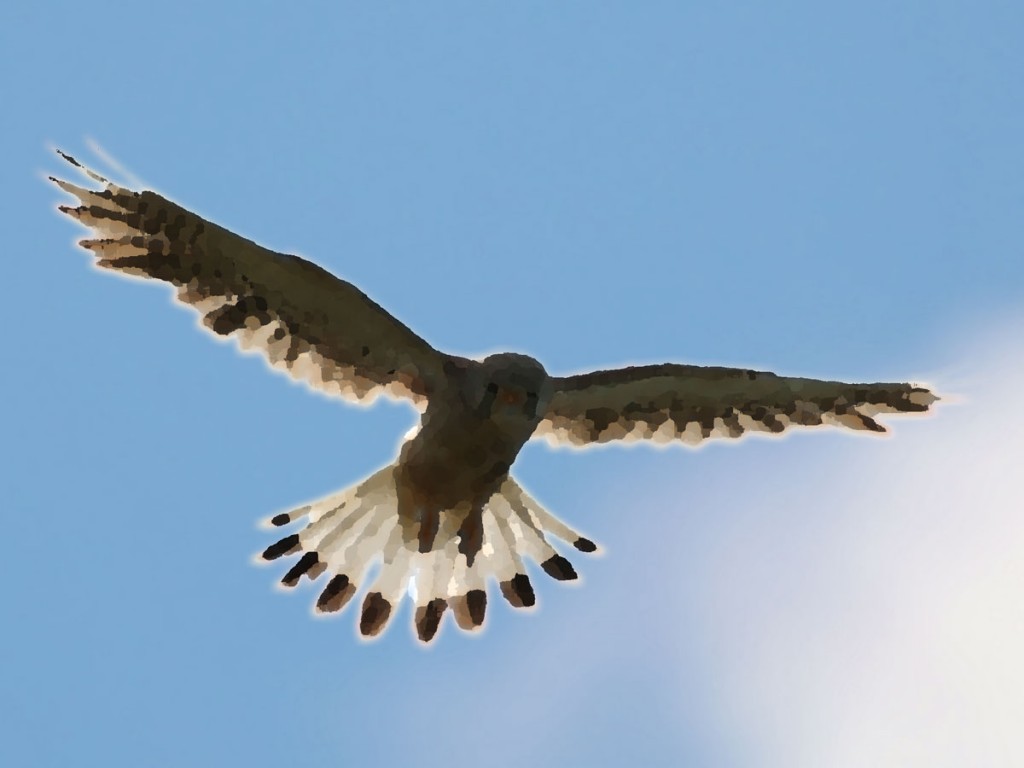
♦ ♦ ♦
The Big Baboon
by Hilaire Belloc (1870–1953)
And now—from the sublime to the ridiculous! The whimsical verse of this prolific Anglo-French author appeals as much to children as to adults. This little ditty is from The Bad Child’s Book of Beasts.
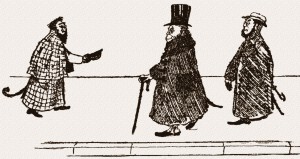
The Big Baboon is found upon
The plains of Cariboo:
He goes about with nothing on
(A shocking thing to do).
But if he dressed up respectably
And let his whiskers grow,
How like this Big Baboon would be
To Mister So-and-so!
♦ ♦ ♦
The Power of The Dog
by Rudyard Kipling (1865–1936)
Only a true dog-lover can comprehend the heartbreaking power of this poem.
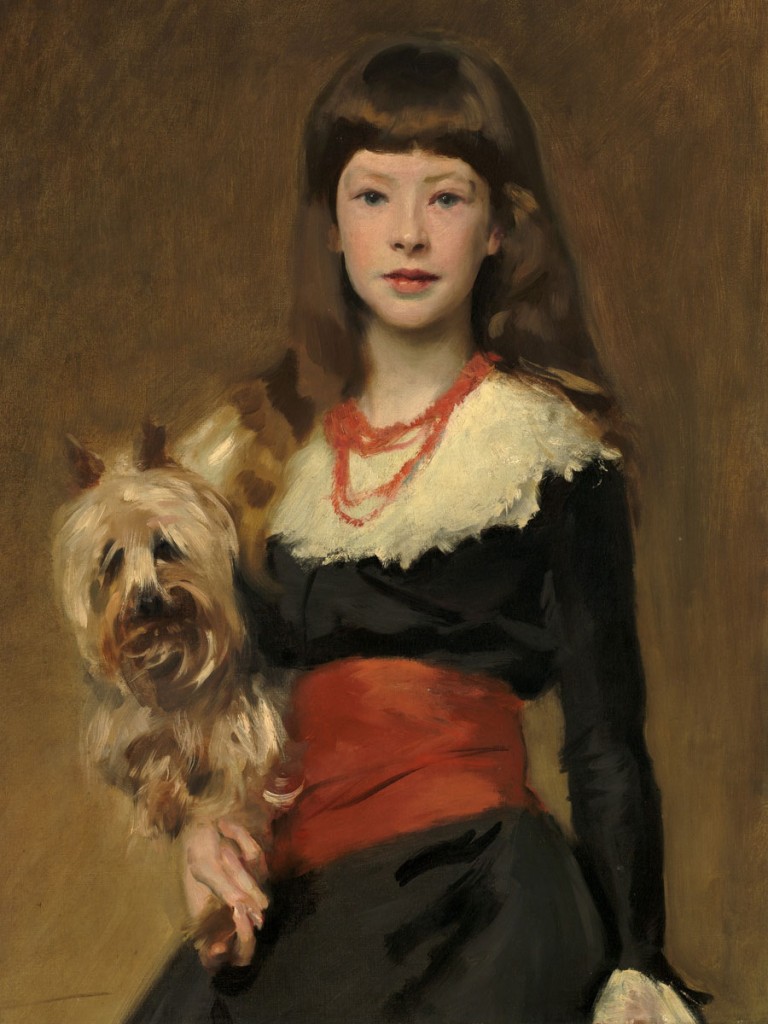
There is sorrow enough in the natural way
From men and women to fill our day;
And when we are certain of sorrow in store,
Why do we always arrange for more?
Brothers and Sisters, I bid you beware
Of giving your heart to a dog to tear.
Buy a pup and your money will buy
Love unflinching that cannot lie—
Perfect passion and worship fed
By a kick in the ribs or a pat on the head.
Nevertheless it is hardly fair
To risk your heart for a dog to tear.
When the fourteen years which Nature permits
Are closing in asthma, or tumour, or fits,
And the vet’s unspoken prescription runs
To lethal chambers or loaded guns,
Then you will find—it’s your own affair—
But…you’ve given your heart to a dog to tear.
When the body that lived at your single will,
With its whimper of welcome, is stilled (how still!).
When the spirit that answered your every mood
Is gone—wherever it goes—for good,
You will discover how much you care,
And will give your heart to a dog to tear.
We’ve sorrow enough in the natural way,
When it comes to burying Christian clay.
Our loves are not given, but only lent,
At compound interest of cent per cent.
Though it is not always the case, I believe,
That the longer we’ve kept ’em, the more do we grieve:
For, when debts are payable, right or wrong,
A short-time loan is as bad as a long—
So why in—Heaven (before we are there)
Should we give our hearts to a dog to tear?
♦ ♦ ♦
The Cats
by Charles Baudelaire (1821–1867)
No more discerning paean to the common house cat has ever been penned.
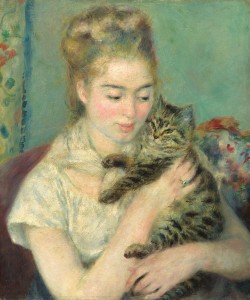
The lover and the stern philosopher
Both love, in their ripe time, the confident
Soft cats, the house’s chiefest ornament,
Who like themselves are cold and seldom stir.
Of knowledge and of pleasure amorous,
Silence they seek and Darkness’ fell domain;
Had not their proud souls scorned to brook
his rein,
They would have made grim steeds for Erebus.
Pensive they rest in noble attitudes
Like great stretched sphinxes in vast solitudes
Which seem to sleep wrapt in an endless dream;
Their fruitful loins are full of sparks divine,
And gleams of gold within their pupils shine
As ’twere within the shadow of a stream.
(Translated from the French by Jack Collings Squire)
♦ ♦ ♦
The Animals
by Edwin Muir (1887–1959)
Having grown up in the remote and unspoiled Orkney Islands off the coast of Scotland, Muir’s longing for humanity’s lost idyllic Eden is reflected in much of his life and work. (He once even experienced a vision in which he witnessed the creation!)
They do not live in the world,
Are not in time and space.
From birth to death hurled
No word do they have, not one
To plant a foot upon,
Were never in any place.
For with names the world was called
Out of the empty air,
With names was built and walled,
Line and circle and square,
Dust and emerald;
Snatched from deceiving death
By the articulate breath.
But these have never trod
Twice the familiar track,
Never never turned back
Into the memoried day.
All is new and near
In the unchanging Here
Of the fifth great day of God,
That shall remain the same,
Never shall pass away.
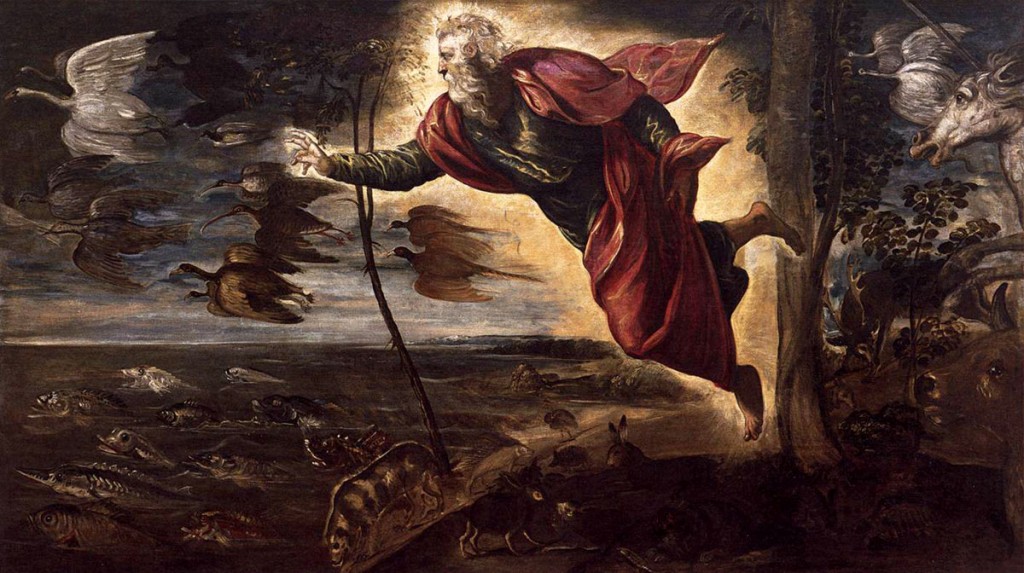
♦ ♦ ♦
We could do this all day! If you have enjoyed these poems, here are links to a few more of our favorites.
- The Raven
by Edgar Allan Poe - To a Mouse
by Robert Burns - The Owl and the Pussy-Cat
by Edward Lear - Pangur Bán
A poem by an anonymous 9th-century Irish monk about his cat
(translation by Seamus Heaney) - The Cat and the Moon
by W.B. Yeats - To Flush, My Dog
by Elizabeth Barret Browning - To a Skylark
by Percy Bysshe Shelley - Ode to a Nightingale
by John Keats - The Maldive Shark
by Herman Melville - The Chambered Nautilus
by Oliver Wendell Holmes, Sr.
If any particular snippets from these poems appealed to you, take note: within reason, Ketchum Mfg. can custom-imprint dog and cat tags to your liking!
